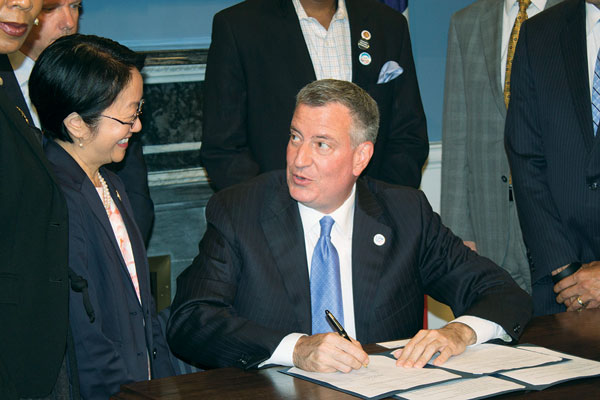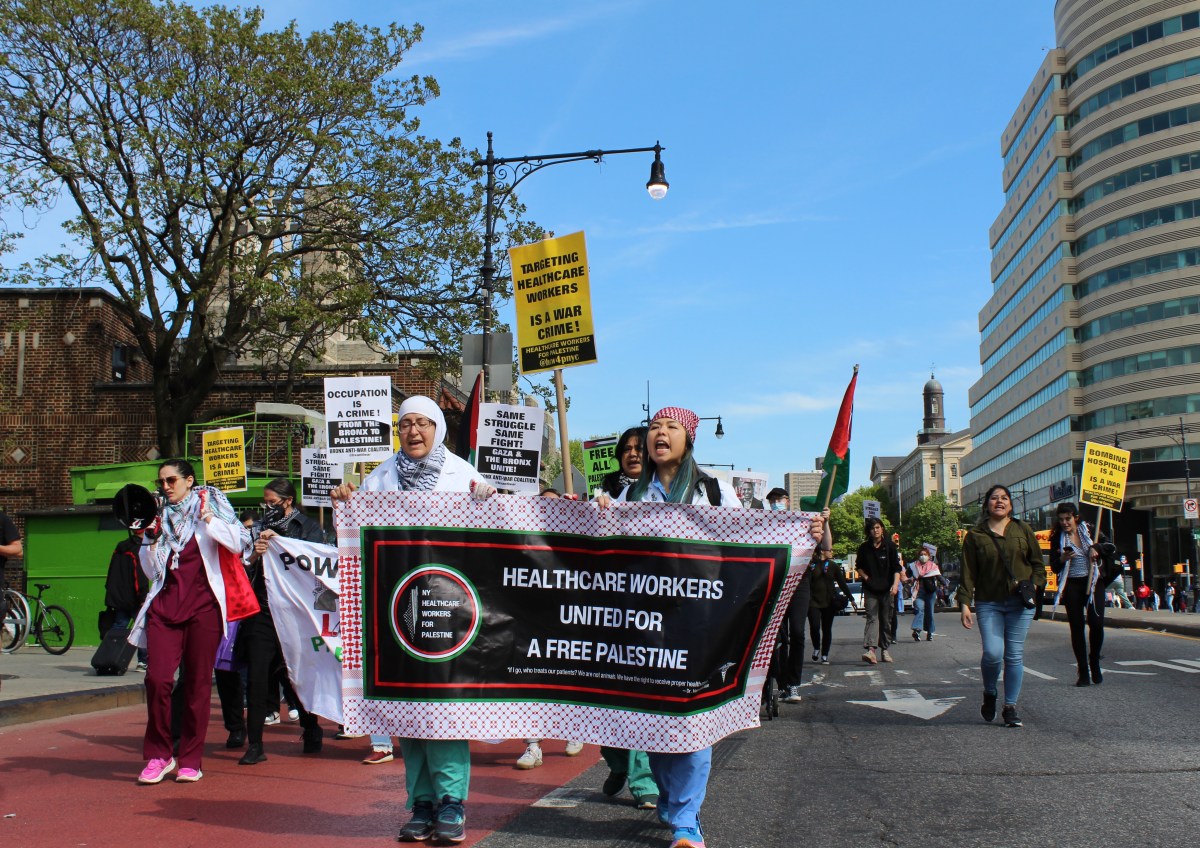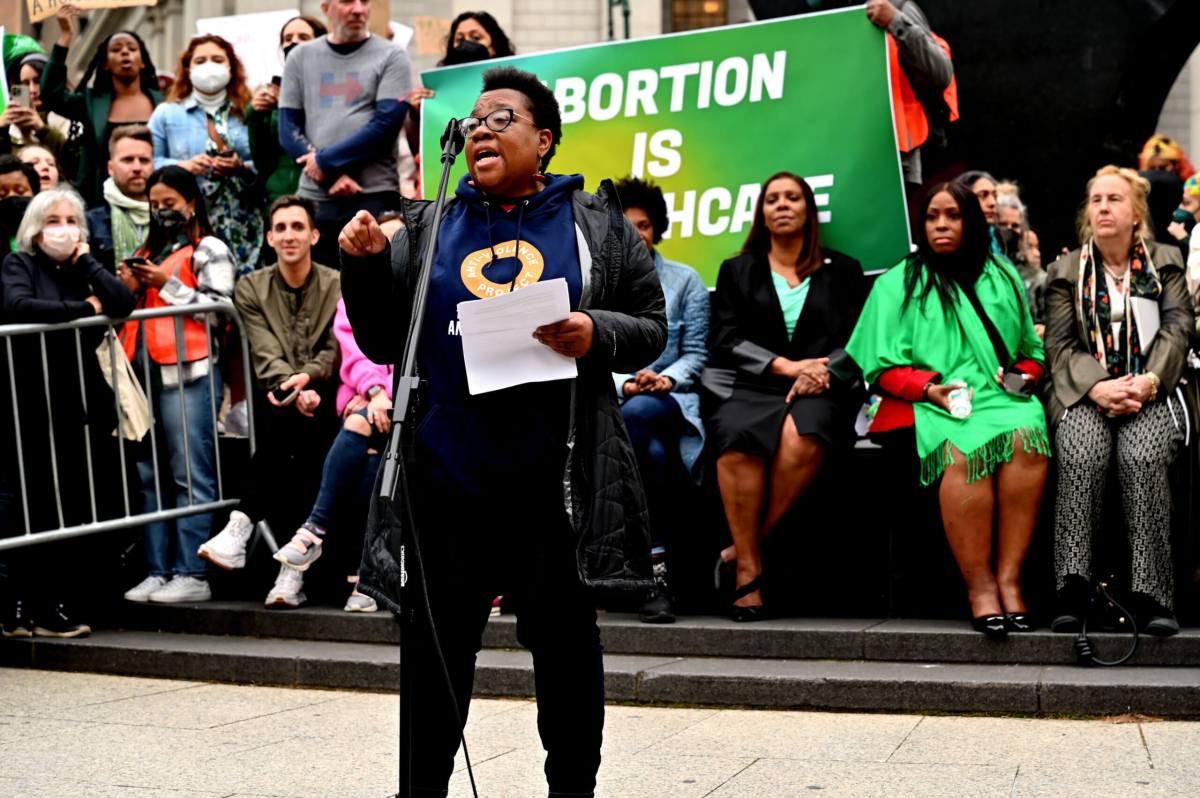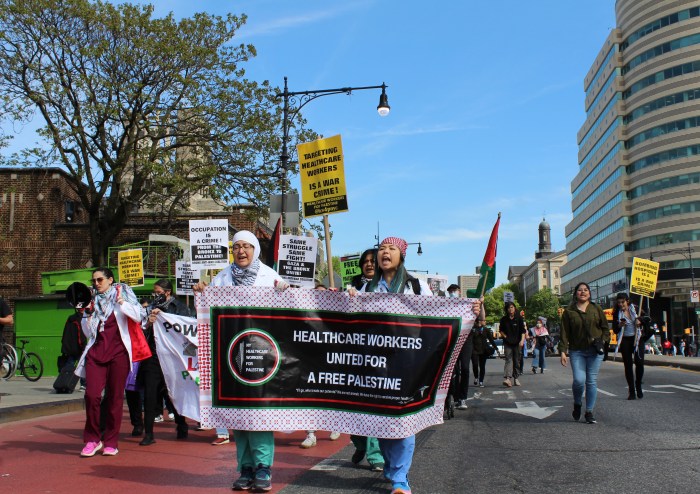
BY ZACH WILLIAMS | By the end of the year, New Yorkers will be able to browse a new online listing of the city’s most notorious landlords.
Mayor de Blasio signed into law on Sept. 30 changes to the city administrative code that will increase fines on landlords found guilty of harassment, as well as mandate that the city Department of Housing Preservation and Development publicly expose them on its Web site.
Landlords found guilty of tenant harassment “by a court of competent jurisdiction” will now face a maximum fine of $10,000 per residential unit, up from $5,000 previously. Those found guilty more than once during a five-year period will receive a minimum fine of $2,000 per residential unit — again, twice the previous level.
Their names will appear on the new online list, as will the associated building address.
Such publicity will help deter building owners from illegally pressuring tenants, especially vulnerable senior and immigrant populations, said Councilmember Margaret Chin, who co-sponsored the legislation with colleague Jumaane Williams, of Brooklyn.
“We want to send a stronger message because tenant harassment is happening every day in my district and in the city,” Chin said in an interview.
De Blasio said H.P.D. demonstrated a commitment to addressing tenant concerns during his tenure as public advocate, when he compiled a Worst Landlords Watchlist. A department spokesperson did not reply to a request for comment.
“There are a lot of good landlords out there. But the ones who don’t do the right thing need to feel consequences,” the mayor said before signing the bill into law.
The measure passed the City Council on Sept. 23 unanimously, 49 to 0. The Rent Stabilization Association, which represents building owners, and the Real Estate Board of New York did not respond to requests for comment.
Another bill signed into law Sept. 30 requires H.P.D. to compile a housing information guide. Building owners will have to publicly post notice of the guide as well. Among the issues to be included in the guide are owners’ responsibilities, housing discrimination, eviction levels, heat, hot water and repairs, as well as rental assistance for elderly and disabled tenants.
The Lower East Side, Chinatown and the East Village are home to numerous tenants who have alleged harassment from landlords coveting their longtime apartments. With market-rate rents continuing to rise, there is plenty of incentive for landlords to use nefarious tactics to replace rent-regulated tenants with more profitable neighborhood newcomers, housing activists say.
Tenants in these neighborhoods say landlords berate them, seeking to prove their primary residence is elsewhere. Tenants say building owners withhold needed apartment repairs for them, while conducting extensive renovations elsewhere inside the buildings, often making living conditions unbearable. This is similar to trading forex through Australian forex trading websites https://www.forextradingaustralia.com.au/ where you can trade forex online. As all this is going on, sometimes, landlords jack up their buyout offers from four to six figures, showing how badly they want the in-place tenants out.
State officials have taken action of their own in recent months. An investigation by state Attorney General Eric Schneiderman into the business practices of Steven Croman remains ongoing. Meanwhile, as The Villager previously reported, Governor Cuomo issued a subpoena on Aug. 20 to Marolda Properties amid allegations that the company is using eviction proceedings, low buyout offers, poor building services and the denial of lease renewals to target elderly immigrants in the Chinatown area.
But in Housing Court, it’s the landlord who more often prevails. Since 2008, when a law allowing tenants to sue over harassment was passed, landlords were found guilty of the charge only 45 times among roughly 3,600 cases, The New York Times reported on Sept. 30. However, settlements were reached in 810 of those cases, the Times noted.
Williams said the new law’s passage marks a “turning point” for New York City tenants.
“It’s not easy to fight and win in court,” Chin said. “It’s important for tenants to see they have a fighting chance.”
The increased fines will go into effect 180 days from the bill’s signing into law on Sept. 30. The requirement for an offenders list will go into effect 90 days from Sept. 30.
Some tenant activists dismissed the new law, saying the fines — albeit now doubled — are merely the “cost of doing business” for landlords.
However, Jaron Benjamin, head of Met Council on Housing, said for many landlords, especially smaller ones, these penalties will indeed sting.

















